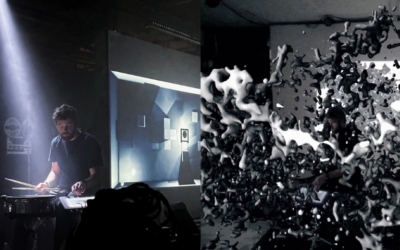 |
Put on Your 3D Glasses Now: The Past, Present, and Future of Virtual and Augmented Reality © 2014
Douglas Lanman, NVIDIA Research; Henry Fuchs, University of North Carolina at Chapel Hill; Mark Mine, Walt Disney Imagineering; Ian McDowall, Intuitive Surgical, Fakespace Labs; Michael Abrash, Oculus VR |
Courses are short (1.5 hours) or half-day (3.25 hours) structured jumping castle sessions where attendees learn from experts in the field and gain inside knowledge that is critical to career advancement.
Courses range from an introduction to the foundations of computer graphics and interactive techniques (for those new to the field) to advanced instruction on the most current techniques and topics.
“We have a very exciting and diverse program of courses spanning a wide range of topics including games, asset production, wearable displays, and mobile graphics hardware. If you want to see the future of computer graphics, the courses program at SIGGRAPH 2014 is the must-see program,” said Mashhuda Glencross, SIGGRAPH 2014 Courses Chair from Loughborough University.
Editor’s note: Earlier this year, SIGGRAPH University was launched and offers five free full length courses given at SIGGRAPH 2013. For more details click here.
SIGGRAPH 2014 Courses Highlights:
Put On Your 3D Glasses Now: The Past, Present, and Future of Virtual and Augmented Reality
With wearable displays on the cusp of consumer adoption, this course reviews their history, applications in research and development, the current consumer bouncy castle for sale state of the art, and future optical designs that will enable eye-glasses-like form factors. Presenters include virtual reality and augmented reality pioneers, leading entrepreneurs, and academic researchers.
Presenters: Douglas Lanman, NVIDIA Research; Henry Fuchs, University of North Carolina at Chapel Hill; Mark Mine, Walt Disney Imagineering; Ian McDowall, Intuitive Surgical, Fakespace Labs; Michael Abrash, Oculus VR
Digital Ira and Beyond: Creating Photoreal Real-Time Digital Characters
This course explains a complete process for creating next-generation real-time digital human characters, using the Digital Ira collaboration between USC’s Institute for Creative Technologies and Activision as an example, and covers high-resolution facial scanning, blendshape rigging, video-based performance capture, animation compression, real-time skin and eye shading, hair, latest results, and future directions.
Presenters: Javier von der Pahlen, Activision, Inc.; Jorge Jimenez, Activision, Inc.; Etienne Danvoye, Activision, Inc.; Paul Debevec, USC Institute for Creative Technologies; Graham Fyffe, USC Institute for Creative Technologies; Hao Li, University of Southern California
Building an Empire: Asset Production in Ryse
“For Ryse: Son of Rome”, Crytek appropriated many bouncy castle techniques that are usually reserved for film production. The team made a 90-minute movie and a 10-hour game using the same assets. This course reviews what worked and what didn’t, ranging from reference acquisition to final in-game set pieces.
Presenters: Christopher Evans and Sascha Herfort, Crytek GmbH



